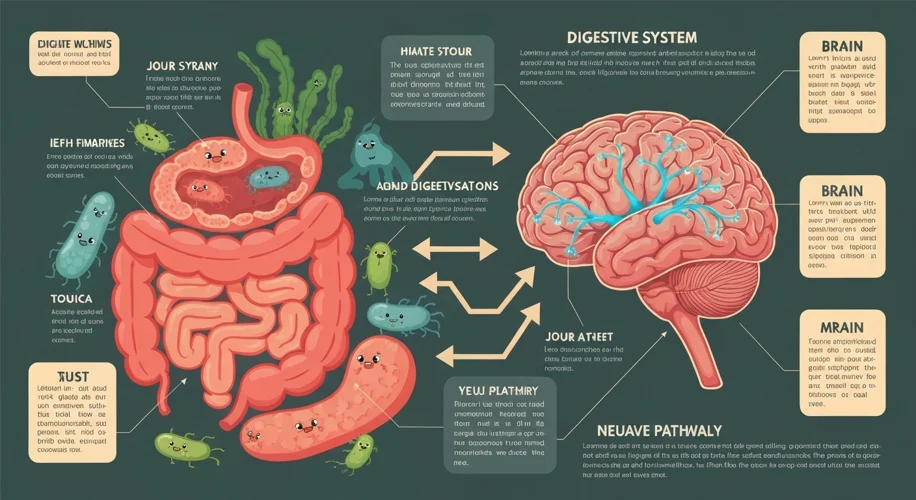You know that “gut feeling” you get? Turns out, it’s more than just a saying. There’s a fascinating connection happening inside you, a two-way street between your digestive system and your brain. This is the gut-brain axis, and the stars of this show are the trillions of tiny microbes living in your gut – your microbiome.
Think of your gut as a bustling city, teeming with bacteria, viruses, fungi, and other microorganisms. Most of them are friendly neighbors, working together to keep things running smoothly. They help digest food, produce vitamins, and even train your immune system. But when the balance is off, things can get a little chaotic, and that chaos can ripple out to affect your mood, your energy levels, and even your cognitive function.
How Does It Work?
The gut and brain communicate through a complex network. Nerves, like the vagus nerve, act as direct highways, sending signals back and forth. Hormones and neurotransmitters, like serotonin (often called the “happy hormone”), are also produced in the gut and can influence brain function. Even the metabolites – byproducts of microbial activity – can travel through the bloodstream and impact brain health.
Did you know that a significant amount of serotonin is produced in your gut? This is one of the key ways your microbiome can influence your mood. An imbalanced microbiome might lead to lower serotonin levels, potentially contributing to feelings of anxiety or low mood.
What Influences Your Microbiome?
- Diet: This is a big one. What you eat directly feeds your gut microbes. A diet rich in diverse, whole foods – fruits, vegetables, whole grains, and fermented foods – provides the fiber and nutrients that friendly bacteria thrive on. Conversely, diets high in processed foods, sugar, and unhealthy fats can encourage the growth of less beneficial microbes.
- Stress: Chronic stress can negatively impact the gut environment, altering the types and balance of microbes present. It’s a tough cycle, as a troubled gut can also make you more susceptible to stress.
- Antibiotics: While life-saving, antibiotics don’t discriminate. They can wipe out both harmful and beneficial bacteria in the gut, disrupting the delicate balance. It can take time for the microbiome to recover after a course of antibiotics.
- Sleep and Exercise: These lifestyle factors also play a role in maintaining a healthy gut environment.
Nurturing Your Gut Health
The good news is that you have a lot of power to influence your microbiome for the better.
- Eat the Rainbow: Aim for a wide variety of plant-based foods. Different fibers feed different microbes, so variety is key. Think colorful fruits, leafy greens, legumes, and whole grains.
- Embrace Fermented Foods: Foods like yogurt (with live cultures), kefir, kimchi, sauerkraut, and kombucha are rich in probiotics – beneficial bacteria that can help replenish your gut.
- Manage Stress: Find healthy ways to cope with stress, such as mindfulness, meditation, yoga, or spending time in nature.
- Prioritize Sleep: Aim for 7-9 hours of quality sleep per night.
- Move Your Body: Regular physical activity has been shown to positively impact the gut microbiome.
Understanding the gut-brain axis opens up a new perspective on how interconnected our health truly is. By making simple, conscious choices about what we eat and how we live, we can actively support the trillions of tiny helpers within us, promoting both mental clarity and physical well-being.

